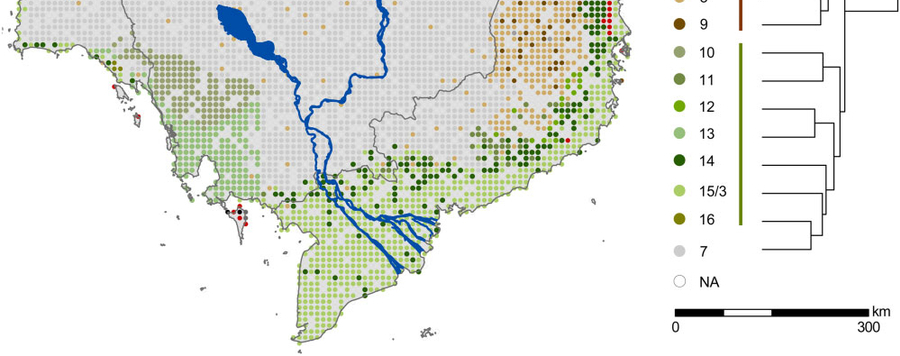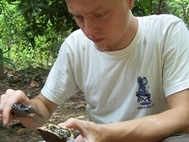
The Mekong - A Barrier to Amphibians?
Geographical information system (GIS)-based cluster analyses and comparative ecological approaches were applied to unravel the hitherto controversially discussed role of the Mekong River as a biogeographical barrier to the amphibian fauna in Indochina. Referring to the unique and independent history of the Lower Mekong, south of the Lao–Cambodian border, this approach focused on the amphibians of southern Indochina and adjacent parts of eastern Thailand. To date, 131 amphibian species have been recorded from this region. In concordance with previous studies, our GIS-based analyses revealed that the amphibian fauna of the Cardamom Mountains, west of the Mekong, possessed no closer affinity to the herpetofauna of the Southern Annamites. In addition, a statistical
comparison of ecological characters showed an occurrence of ecological differentiation among amphibians across the Lower Mekong. Our results suggest that the Lower Mekong serves as, or at least coincides with, a biogeographical barrier in southern Indochina. Here, we discuss this hypothesis, together with selected species spatial distribution patterns, their species-specific ecological traits and the palaeogeographical background of the region.






